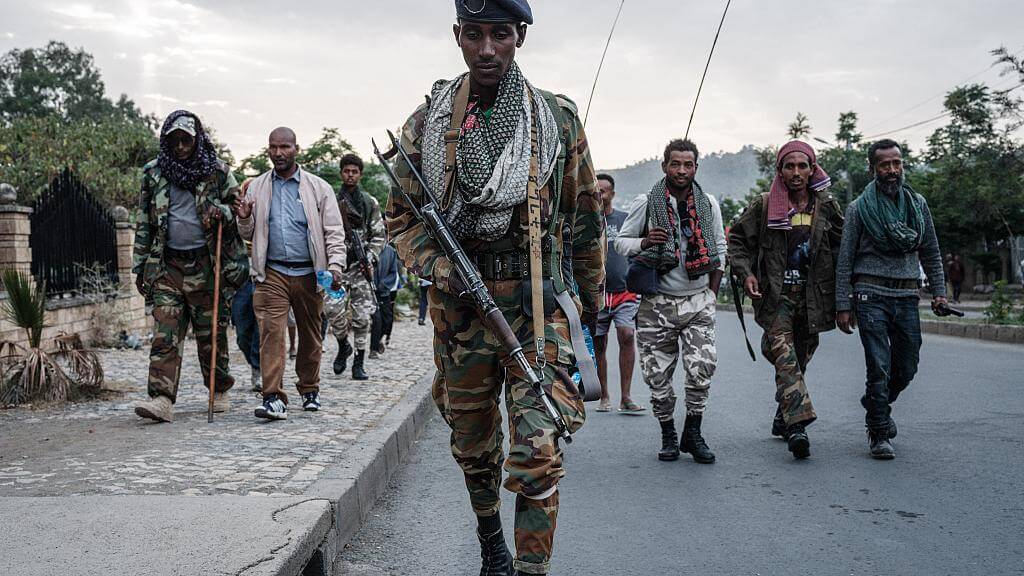Sudan has summoned Ethiopian Ambassador to Khartoum Petal Amero to inform him about the recovery of 29 corpses found floating on Sudan’s side of the Tekeze river between July 26 and August 8, the Sudanese Foreign Ministry stated on Wednesday. Sudan claimed that the bodies were of Ethnic Tigrayans, indicating the possibility of mass executions by government-allied troops in Ethiopia’s Tigray region.
The Sudan News Agency (SUNA) reported that the bodies floated in the Tekeze river, also known as Setet river in Sudan, from Tigray and were discovered by people in villages in the Wad Al Helio region of Sudan’s Kassala state.
The Ministry informed Amero that the identities of the corpses were known by some Ethiopians living in Wad Al Helio. It stated that law officials have “taken the necessary procedures in this regard in accordance with the Criminal Procedure Law of the Republic of Sudan” and asked Amero “to convey this issue to the authorities in his country.”
SUNA mentioned that the Sudanese government has said the camps hosting Tigrayan refugees “should be far from the Ethiopian borders to ensure the safety of the Ethiopian refugees.” Sudan hosts about 60,000 Ethiopian refugees, mainly from Tigray, who have fled the fighting between the Tigray People’s Liberation Front (TPLF) and Ethiopian forces.
The nine-month-long conflict in Tigray has killed thousands and displaced over two million since clashes erupted between government forces and the TPLF in November. It has also witnessed grave human rights violations, including mass killings, rapes, and deliberate starvation.
Also Read: Does International Aid Lead to Dependency? The Case of Ethiopia
Moreover, both the TPLF and the Ethiopian government have accused each other of committing mass atrocities against civilians. On Monday, Tigray forces stated that at least 150 people in Tigray starved to death because the Ethiopian government prevented the delivery of aid into the region. The claims were in line with several United Nations reports warning that Tigray faced an imminent hunger crisis and millions were on the brink of starvation. On the other hand, the government has accused the TPLF of killing hundreds of civilians and looting food aid warehouses in the Amhara state bordering Tigray.
The Ethiopian government has also rejected international efforts to mediate, including Sudan’s proposal to end the conflict. Last month, Sudan recalled its Ambassador to Ethiopia after Addis Ababa rejected Khartoum’s offer to negotiate a ceasefire in the Tigray conflict and accused it of occupying Ethiopian territory and supporting the TPLF rebels.
Also Read: The Tigray Conflict Cannot Be Resolved So Long as Both Sides See Themselves Winning
Additionally, Sudan accused Ethiopia of sending arms to counter-revolutionaries loyal to deposed leader Omar Al-Bashir after Sudanese officials seized 72 boxes of weapons and military equipment aboard an Ethiopian Airlines flight in Khartoum on Monday. The Ethiopian Airlines denied Sudan’s claims, saying the weapons were a “legal and commercial” shipment of hunting guns.
Ties between the two neighbours have been strained by disputes over the Al-Fashaqa region and the Nile Dam. Both sides lay claim to Al-Fashaqa, a fertile area on the Sudan-Ethiopia border. Sudan claims that the area lies in its territory according to a demarcation treaty signed between the two nations in the early 1900s, a claim denied by Ethiopia. Tensions have also escalated between Egypt, Sudan, and Ethiopia over the latter’s construction of the Nile Dam on the Blue Nile.

